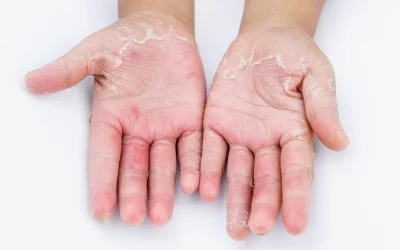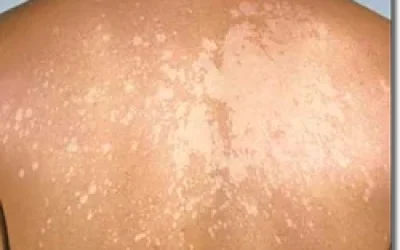Discover Expert Care for Fungal Infections: Find the Best Doctors in Punjab for Effective Treatment

book your appointment

Doctor for Fungal Infection in Punjab
Fungal infections are a widespread concern affecting millions of people globally. If you’re looking for a doctor for fungal infection in Punjab, these infections can manifest in various forms, impacting different parts of the body. Dr. Parwaaz Matharoo, a distinguished dermatologist in Punjab, specializes in diagnosing and treating fungal infections. At ‘The House of Skin,’ Dr. Matharoo combines his extensive knowledge and experience with state-of-the-art technology to provide effective, patient-centric care.
Understanding Fungal Infections
What Are Fungal Infections?
Fungal infections are caused by fungi, which are microorganisms that can live in the air, soil, water, and plants. While many fungi are harmless, some can cause serious infections. These infections can affect the skin, nails, and mucous membranes, leading to discomfort and potential complications if not treated properly.

Types of Fungal Infections
- Athlete’s Foot (Tinea Pedis): Affects the feet, causing itching, redness, and peeling.
- Ringworm (Tinea Corporis): Appears as circular, red, flat sores on the skin.
- Jock Itch (Tinea Cruris): Affects the groin area, causing itching and a red, ring-like rash.
- Yeast Infections (Candidiasis): Common in moist areas like the mouth, throat, and genitals.
Causes and Risk Factors
Fungal infections are typically caused by direct contact with fungal spores or through the spread from person to person. If you’re looking for a doctor for fungal infection in Punjab, key risk factors include:
- Warm and Humid Conditions: Fungi thrive in warm, moist environments, such as public showers, swimming pools, and locker rooms.
- Weakened Immune System: People with compromised immune systems, such as those with HIV/AIDS, diabetes, or undergoing chemotherapy, are more susceptible.
- Poor Hygiene: Not maintaining proper hygiene can facilitate the growth and spread of fungi.
- Close Contact: Sharing personal items like towels, shoes, or clothing can transmit fungal infections.
Symptoms of Fungal Infections
The symptoms of fungal infections vary depending on the type and location of the infection but generally include:
- Redness and Itching: The affected area becomes red, itchy, and inflamed.
- Scaling and Cracking: The skin may become dry, scaly, and crack.
- Blisters and Sores: In severe cases, blisters or sores may develop.
- Discoloration of Nails: Fungal nail infections can cause nails to become discolored, thickened, and brittle.

Diagnosis and Treatment
Diagnostic Methods
Accurate diagnosis is crucial for effective treatment. Dr. Parwaaz Matharoo employs various diagnostic techniques, including:
- Physical Examination: A thorough visual inspection of the affected area.
- Microscopic Analysis: Scraping the infected skin or nail for examination under a microscope.
- Culture Tests: Growing fungi from samples to identify the specific type causing the infection.
Treatment Options
Dr. Matharoo tailors treatment plans to the type and severity of the fungal infection. Common treatments include:
- Topical Antifungals: Creams, ointments, or sprays applied directly to the infected area.
- Oral Medications: Prescribed for more severe or widespread infections.
- Preventive Measures: Guidance on maintaining hygiene and avoiding environments that encourage fungal growth.
Prevention Tips Doctor for Fungal Infection
Preventing fungal infections involves maintaining good hygiene and making specific lifestyle changes. If you’re looking for a doctor for fungal infection in Punjab, here are some detailed tips to reduce the risk of infection:

Keep Skin Dry and Clean
Regular Washing and Drying:
- Why It’s Important: Fungi thrive in warm, moist environments. Keeping your skin clean and dry prevents the growth of fungi.
- How to Do It: Wash your skin daily with soap and water, paying special attention to areas prone to moisture, such as under the arms, between the toes, and in the groin area. After washing, thoroughly dry your skin, especially in these areas, to remove any residual moisture.
Special Attention to Moisture-Prone Areas:
- Feet: After bathing, ensure your feet are completely dry, especially between the toes. Use a separate towel to dry your feet to avoid spreading fungi to other parts of your body.
- Groin Area: Pat dry the groin area with a clean towel. Consider using a hairdryer on a cool setting to ensure the area is completely dry.
Avoid Sharing Personal Items
Personal Hygiene Items:
- Towels: Using shared towels can transfer fungal spores from one person to another. Always use your own towel and wash it regularly.
- Clothing and Footwear: Sharing clothes and shoes can spread fungal infections, especially if the previous wearer had an infection. Use your own clothes and footwear and keep them clean.
Practical Tips:
- Label personal items if you live in a shared space to avoid accidental sharing.
- Wash shared items like bed linens and bath towels frequently with hot water and detergent.
Wear Breathable Clothing
Choosing the Right Fabrics:
- Breathable Fabrics: Fabrics like cotton and moisture-wicking materials allow air to circulate around your skin, reducing moisture buildup. Avoid synthetic fabrics that trap heat and sweat.
- Footwear: Choose shoes made of natural materials like leather, which allow your feet to breathe. Avoid wearing rubber or plastic shoes for extended periods.
Clothing Tips:
- Opt for loose-fitting clothing, especially in hot and humid weather, to allow your skin to breathe.
- Change out of damp or sweaty clothes as soon as possible to prevent fungal growth.
Use Antifungal Powder
Preventive Use:
- Why It’s Important: Antifungal powders help keep skin dry and create an inhospitable environment for fungi.
- How to Use: Apply antifungal powder to areas prone to sweating, such as your feet and the groin area. Sprinkle some powder inside your shoes before wearing them to keep your feet dry throughout the day.
Additional Tips:
- Use antifungal powder daily, especially during hot and humid weather or before engaging in activities that cause sweating.
- Consider using a medicated powder recommended by a healthcare professional if you are prone to fungal infections.
General Tips
Maintain Good Foot Hygiene:
- Wear clean socks daily and choose socks made of moisture-wicking materials.
- Alternate shoes to allow them to dry out between uses, reducing the buildup of moisture.
Hygiene in Shared Spaces:
- Use flip-flops or shower shoes in communal showers or locker rooms to prevent direct contact with potentially contaminated surfaces.
- Regularly clean and disinfect shared spaces, such as bathrooms and gyms, to reduce the presence of fungal spores.
Boost Your Immune System:
A strong immune system helps your body fight off infections, including fungal infections. Eat a balanced diet rich in vitamins and minerals, stay hydrated, get regular exercise, and ensure adequate sleep.
Why Choose Dr. Parwaaz Matharoo?

Expertise and Experience
State-of-the-Art Facilities
“The House of Skin” is equipped with the latest medical technologies, ensuring accurate diagnosis and effective treatment.
Patient-Centric Care
Dr. Matharoo prioritizes patient comfort and satisfaction, providing personalized care tailored to individual needs. He emphasizes patient education, ensuring that patients understand their condition and treatment options.
Conclusion
Frequently Asked Questions (FAQs)
If you suspect a fungal infection, seek medical advice promptly. Early diagnosis and treatment are crucial for effective management.
Yes, fungal infections can recur, especially if preventive measures are not followed. Adhering to Dr. Matharoo’s advice on hygiene and lifestyle changes can reduce the risk of recurrence.
Over-the-counter treatments may be effective for mild infections. However, for persistent or severe infections, professional medical advice is recommended.
The duration of treatment varies depending on the type and severity of the infection. Dr. Matharoo will provide a personalized treatment plan with an estimated timeline.
Maintaining good hygiene, keeping skin dry, wearing breathable clothing, and avoiding sharing personal items are key preventive measures. Dr. Matharoo can provide additional personalized advice.
Get Consultation With Our Experts
Schedule a consultation today and embark on a journey towards informed decision-making and success. Your challenges, our expertise – let’s collaborate for a brighter future.

